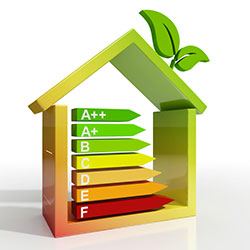Home » Uncategorised »
Building Owners Must Act Now to Comply with MEES
This article is an external press release originally published on the Landlord News website, which has now been migrated to the Just Landlords blog.

Building owners, including those of commercial premises, must act now to avoid breaking new laws and comply with the Minimum Energy Efficiency Standards (MEES).

Building Owners Must Act Now to Comply with MEES
From 1st April 2018, it will be illegal for landlords to grant new leases to new or existing tenants for properties in England and Wales that do not meet the Government’s MEES – part of the Private Rental Sector Energy Efficiency Regulations 2015.
It will be the landlord’s responsibility to ensure that the property has an Energy Performance Certificate (EPC) rating of E or above. However, it is estimated that up to 20% of all non-domestic properties in England and Wales could have an F or G rating.
In most cases, it will be illegal to let a property without an EPC, or with a rating of F or G.
Energy performance assessment specialist Elmhurst Energy is encouraging building owners to act now by commissioning an up-to-date EPC that will not only identify the current rating – which may have changed over time – but will also recommend opportunities for improvement.
The Managing Director of Elmhurst Energy, Martyn Reed, explains: “Owners of commercial buildings are running out of time to make improvements to their building, as it will take time to implement energy saving improvements.
“It is vitally important that facilities and energy managers assess the energy efficiency of their non-domestic properties by commissioning an energy assessment to establish the current rating and to identify what measures must be implemented between now and April 2018.”
There are some exemptions, for example, if the property does not require an EPC under current regulations, if the landlord can demonstrate that they have implemented all cost effective energy improvements, or the required improvement will devalue the property. However, landlords should not see exemptions as a loophole.
All building owners must also be aware that from April 2020, it will be illegal to let a property with an EPC rating below E, even when the lease is already in place. Elmhurst Energy also expects the regulations to be raised to prohibit rental of properties rated D or E from 2030.
What measures are you taking to comply with the MEES?




